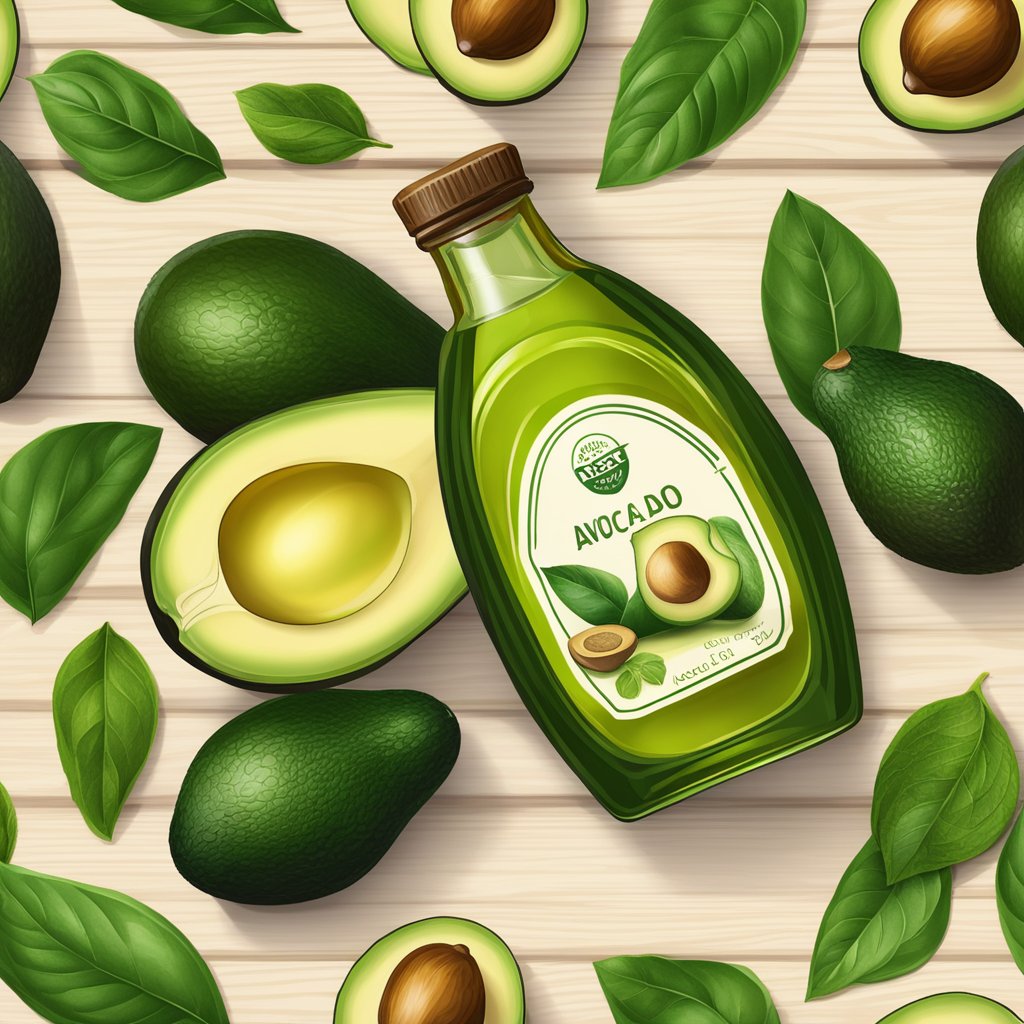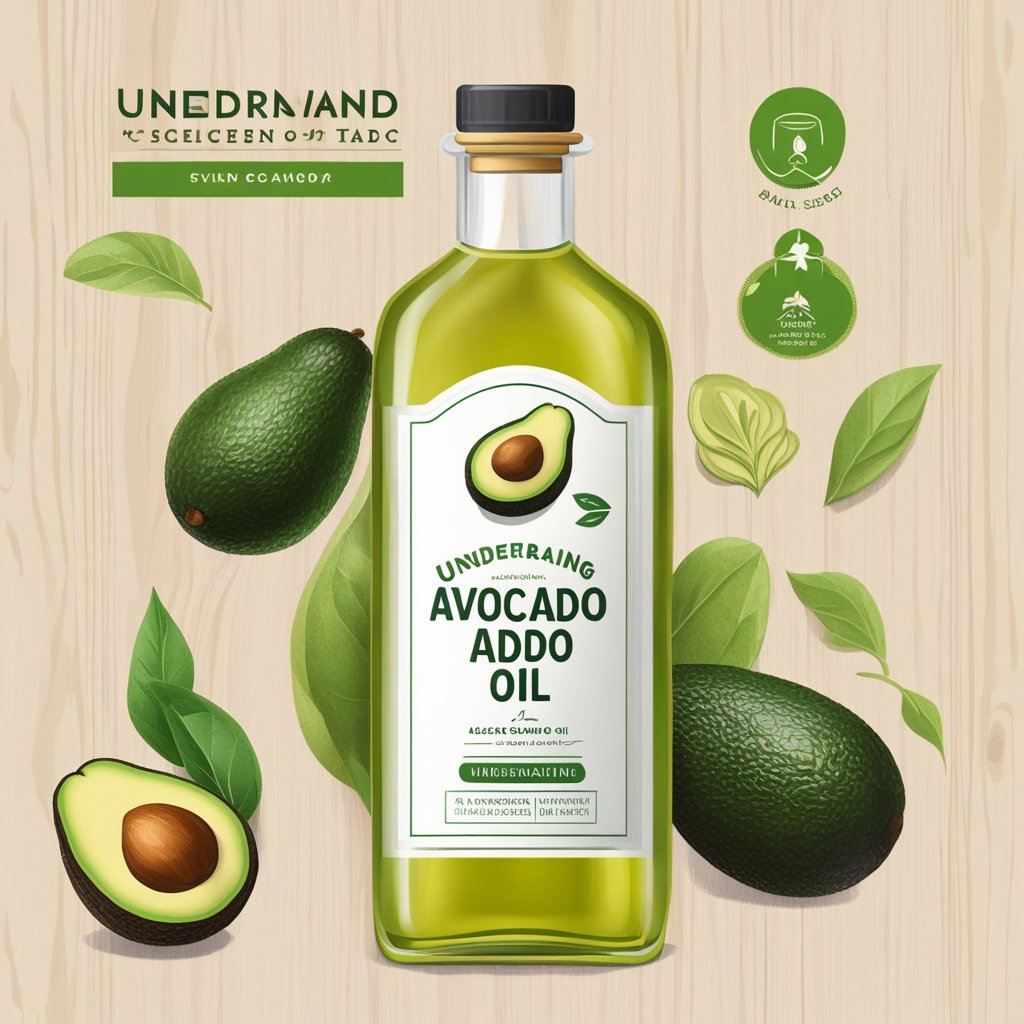Avocado oil has emerged as a celebrated culinary and beauty staple, praised for its versatility and health benefits. Extracted from the creamy flesh of avocados, this oil is rich in monounsaturated fats, which have been associated with numerous health advantages. Unlike many oils that undergo extensive processing, high-quality avocado oil can retain the nutritional value and flavor profile of the original fruit. This makes it a highly sought-after ingredient for both home cooks and professional chefs aspiring to elevate their dishes with both taste and nutritional content.

In selecting the best avocado oil, one must consider factors such as extraction method, purity, and the source of the avocados. Cold-pressed avocado oil tends to preserve the most nutrients and provides a flavor that is closer to that of the fresh fruit. It is also beneficial to look for oils that are unrefined and unblended to ensure the highest quality. Recognizing the best avocado oils involves scrutinizing labels and understanding industry terms, which can guide one toward making informed purchases that align with their cooking or beauty needs.
Avocado oil’s applications extend beyond the kitchen; it’s also a valuable addition to health and beauty routines. Its moisturizing properties make it a desirable ingredient in skin care and hair care products. When consumed, the monounsaturated fats in avocado oil support heart health and may help reduce inflammation. This oil is not just a trendy ingredient; it’s a multipurpose addition to a health-conscious lifestyle.
Key Takeaways
- Avocado oil is valued for its health benefits and rich monounsaturated fat content.
- Quality avocado oil is characterized by its extraction method and purity.
- Aside from culinary uses, the oil is also incorporated into health and beauty routines.
Understanding Avocado Oil

When I choose avocado oil, I consider its type and nutritional content, as these factors influence its culinary uses and health benefits.
Types of Avocado Oil
Extra Virgin Avocado Oil: This is the highest quality avocado oil, obtained from the first cold pressing of the fruit. It has a rich, green color with a distinct avocado flavor, which makes it perfect for dressings and dips.
Virgin Avocado Oil: Similar to extra virgin, virgin avocado oil is made from the first press, but it may have a milder flavor and a lighter color. It’s also great for salads and garnishing.
Refined Avocado Oil: Obtained by pressing the avocado pulp and then treating the oil to remove impurities. This type of oil is more heat-stable with a neutral taste, ideal for high-heat cooking methods like frying and sautéing.
- Cold-Pressed: The oil is extracted without heat, which preserves the oil’s natural flavor and nutritional value.
- Expeller-Pressed: This method uses pressure to extract the oil, which can generate heat and possibly affect the oil’s characteristics.
- Naturally Refined: After extraction, the oil is filtered and refined without chemicals, maintaining more of the oil’s beneficial properties.
Nutritional Profile
Avocado oil is praised for its health benefits, particularly due to its fat composition and nutrient content. Here’s a brief overview:
| Nutrient | Benefit |
|---|---|
| Monounsaturated Fat | May help lower bad cholesterol levels |
| Polyunsaturated Fat | Essential fats important for body functions |
| Saturated Fat | Less predominant; important in moderation |
| Vitamin E | Antioxidant that supports skin and immunity |
| Oleic Acid | Supports heart health and may reduce inflammation |
| Antioxidants | Protect cells from damage |
| Beta-Sitosterol | May support heart health |
I always recommend looking at the specific nutritional content on the label, as it can vary between different brands and types of avocado oil. A high content of monounsaturated fat makes avocado oil a heart-healthy choice. Furthermore, it’s a versatile oil in the kitchen, suitable for both cold dishes and high-heat cooking.
Quality and Selection
When selecting the best avocado oil, it’s crucial to consider its purity, source, and the type of packaging, as these factors directly influence the oil’s quality, taste, and shelf life.
Organic vs. Conventional
Organic avocado oils are made from fruits grown without synthetic pesticides or fertilizers, ensuring a natural production process. In contrast, conventional oils may contain residues from these chemicals. I recommend opting for organic oils to avoid these substances, as they are often non-GMO and considered to be of higher quality due to strict agricultural standards.
-
Organic Factors:
- Pesticides: Minimal to none
- GMOs: Usually non-existent
- Taste: Often richer and cleaner
-
Conventional Factors:
- Pesticides: Potential residue
- GMOs: Possible presence
- Taste: Can be less vibrant
Identifying Pure Products
To ensure the pure quality of avocado oil, check labels for terms like “virgin” or “extra-virgin,” which indicate minimal processing and no additives. The purity affects both taste and nutritional content. Price can be a hint; cheaper options might be diluted with other oils. Be vigilant about labels that clarify the product as 100% pure avocado oil.
- Labels to Look For:
- Virgin/Extra-Virgin: Indicates minimal processing
- 100% Pure: No additives or blending with other oils
- Certifications: Such as non-GMO or organic seals
Packaging Influence
The packaging plays a significant role in preserving the quality and extending the shelf life of avocado oil. Glass bottles are superior to plastic, as they don’t interact with the oil and can better protect it from oxidation. Metal containers can also be good, but I prefer transparent glass to monitor the oil’s color. Dark-colored glass offers protection from sunlight, which helps maintain the oil’s flavor and nutritive value.
-
Packaging Materials:
- Glass: Non-reactive, preserves freshness
- Plastic Bottle: May degrade; less ideal for long-term storage
- Metal: Decent protection, opaque is a drawback
-
Packaging Colors:
- Transparent: Allows for visual quality checks
- Dark: Better for protecting oil from light
Avocado Oil in the Kitchen
Avocado oil is a versatile ingredient in my kitchen, prized for its beneficial properties and high smoke point. I find it an excellent choice for an array of cooking methods and flavor pairings due to its healthful qualities and mild, yet rich taste.
Cooking Uses
I utilize avocado oil in various cooking applications due to its versatility. For high-heat cooking, such as frying and grilling, it is my go-to option because it does not readily oxidize, thus maintaining its nutritional integrity. When I am baking, avocado oil can serve as a healthy alternative to butter, providing moisture without adding a strong flavor. In terms of sautéing, it allows me to cook ingredients over medium-high heat without the risk of burning the oil, which can compromise both taste and nutritional value.
Flavor Pairings
In exploring flavors, I pair avocado oil with an assortment of food items. The oil’s smooth, buttery flavor with a hint of nuttiness complements vegetables and proteins alike. A simple drizzle enhances the taste and aroma of a dish. It pairs exceptionally well with:
- Citrus flavors like lemon and lime
- Seafood, especially salmon and shrimp
- Fresh herbs, such as cilantro and parsley
- Spicy elements, including chili peppers and garlic
By using avocado oil, I can amplify these flavors without overpowering the primary ingredients.
Smoke Point Consideration
One of my key considerations when using fats for cooking is the smoke point – the temperature at which an oil starts to break down and release smoke. Avocado oil boasts a high smoke point of around 520°F (271°C), making it a safer and more stable choice for high-heat cooking methods compared to oils with lower smoke points, like olive oil. Here’s how various cooking oils compare:
| Oil Type | Smoke Point |
|---|---|
| Avocado Oil | 520°F (271°C) |
| Olive Oil | 375-470°F (190-243°C) |
| Canola Oil | 400°F (204°C) |
Because of its high smoke point, using avocado oil can aid in preserving the nutritional value of the food and maintaining a cleaner taste, which is essential for heart health and overall wellness.
Health and Beauty Applications
In exploring the health and beauty applications of avocado oil, I find it essential to focus on the tangible benefits for skin and hair, as well as its nutritional contributions that support overall wellbeing.
Skin and Hair Benefits
Avocado oil is a rich source of biotin, proteins, and minerals that promote stronger hair and improved skin elasticity. I have discovered through research that its application can deeply nourish the skin, enhance wound healing, and reduce inflammation. As a topical treatment, its penetrative properties ensure effective absorption, offering a shield against skin damage.
- Moisturizing: Avocado oil’s hydration effect combats dry skin and scalp conditions.
- Protection: High in vitamin E and carotenoids, it helps protect skin from UV radiation and environmental pollutants.
For hair, I’ve observed it provides:
- Strength: Proteins and vitamins contribute to hair health, potentially reducing breakage.
- Growth: Minerals like zinc can aid in supporting hair growth and repair.
Nutritional Contribution
As a food grade oil, the organic use of avocado oil in diets is applauded for its nutritional benefits. It is a heart-friendly choice due to its monounsaturated fats and the presence of EPA, which supports cardiovascular health. The oil’s nutritional profile contributes to:
| Nutrient | Benefit |
|---|---|
| Vitamin E | Antioxidant properties; supports heart health |
| Monounsaturated Fats | Can help reduce bad cholesterol levels |
| Carotenoids | Supports immune function and skin health |
Incorporating avocado oil in my diet, I have found, supports efficient nutrient absorption — especially benefiting the uptake of fat-soluble vitamins and carotenoids, which are vital for maintaining optimal health.
Frequently Asked Questions
In this section, I address some of the most common queries regarding avocado oil, focusing on purity, health benefits, culinary uses, haircare, skincare, and frying.
How can the purity of avocado oil be determined?
To assess the purity of avocado oil, I check for certification labels such as “Extra Virgin” or “Cold-Pressed,” which indicate no chemical processing. Transparency of manufacturing processes by the producer also plays a crucial role in ensuring purity.
What are the health benefits of using 100% avocado oil?
Using 100% avocado oil provides numerous health benefits. I note its rich content of monounsaturated fats that support heart health and its abundance of vitamin E and lutein, which promote skin and eye health.
What characteristics define the best avocado oil for culinary use?
The best avocado oil for culinary use should possess a high smoke point above 250°C (482°F), a neutral taste, and a greenish hue, indicating minimal processing and retention of nutrients.
Which avocado oil is recommended for haircare routines?
For haircare routines, I recommend avocado oil that is unrefined, virgin, and organic, ensuring that it retains most of its natural vitamins and minerals that nourish and strengthen hair.
What should be considered when selecting avocado oil for skincare?
When selecting avocado oil for skincare, I consider factors such as the method of extraction—preferably cold-pressed—and the absence of additives or preservatives, which ensure that the oil is gentle and nourishing for the skin.
Are there any reputable brands of avocado oil that are recommended for frying?
For frying, I recommend reputable brands of avocado oil that are labeled “Refined” as they have a high smoke point, making them stable and suitable for high-heat cooking. Brands that also perform regular quality tests and promote transparency are my go-to choices.